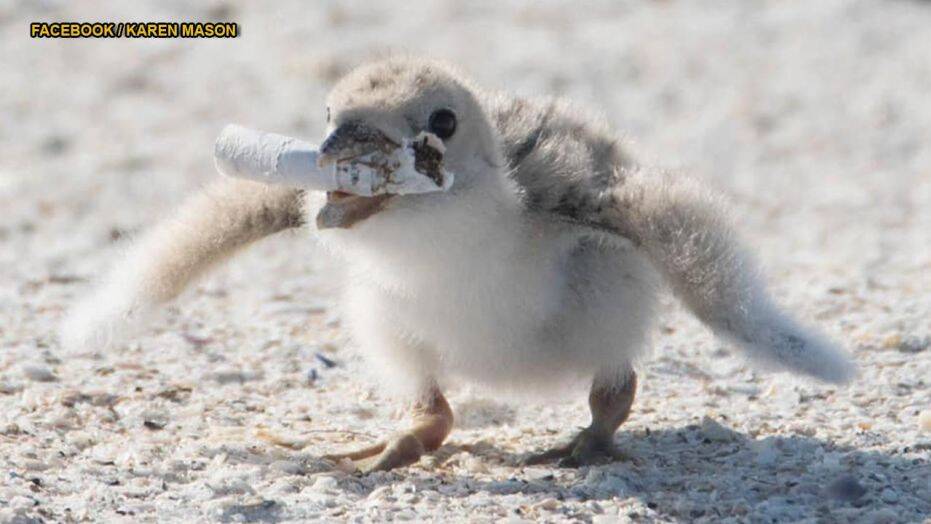
Bird Feeds Cigarette Butt To Chick At A Beach In Florida
Karen Mason, a photographer, captured a moment on her camera that should be considered as a wakeup call to all beachgoers.
The photographs that were captured by Karen showed a momma bird feeding a discarded cigarette but to its baby in a beach in Florida.

The images that were captured by Karen have sparked out outrage amongst nature lovers.
Karen is also calling out beachgoers and is calling for cleaner beaches in the state.
In the post that was made by Karen, she said, “this Skimmer chick was offered a cigarette butt by its parent. It’s time we cleaned up our beaches and stopped treating them like one giant ash tray.”
Karen is not the only one who has called out the beachgoers.
ManaSota-88, an environmental group in Florida has called for a ban of tobacco on beaches in the state.
The environmental group released a statement about the incident, they said, “Unfortunately, the 2019 Legislature did not act on the smoking ban and the bill died in the Environment and Natural Resources committee. State government does have a role in addressing public health hazard. Cigarette smokers should not be allowed to use our public beaches as an ashtray. ManaSota-88 fully supports local and state efforts to reduce the irresponsible disposal of cigarette butts on public beaches.”
Sadly, this is not the first time this has happened.
According to the National Oceanic Atmospheric Administration Office of Response and Restoration, this happens quite often but goes unnoticed.
Eating cigarette butts can cause the animal to starve to death or choke to death.

Thomas Novotny, the founder of the Cigarette Butt Pollution Project, said: “cigarette butts are actually toxic, hazardous waste.”
Thomas started the project with the hope to eliminate tobacco waste from the environment.
He added, “Ninety-nine percent of all cigarette butts are composed of the filter, which is made of a plant-based plastic, that takes years to deteriorate, never really biodegrading completely, and this allows the chemicals to continue to seep out.”
More than 5 trillion cigarettes are made around the world annually, and most of them come with filters that are made out of cellulose acetate, which is a type of plastic that takes more than one decade to decompose.
If animals accidentally eat this, they could starve to death.